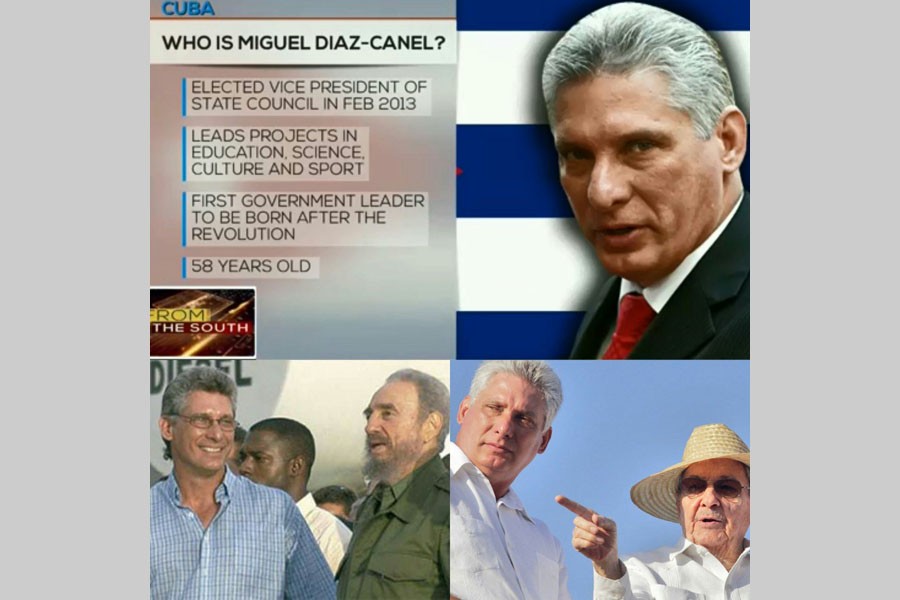Cuban President Miguel Diaz-Canel said his office would shortly launch a new website, Twitter account and Youtube channel as part of his bid to harness the digital era to better communicate government policy to an ever-more connected people.
Connectivity in Communist-run Cuba, a tech laggard, has surged in recent years as the government opened cybercafes, Wi-Fi parks and this month launched mobile internet - although few homes are connected to the web.
Diaz-Canel, who took office from the media-shy Raul Castro in April, has said it is important for the government to advocate for its policies online as Cubans increasingly connect to the web.
The 58-year-old Diaz-Canel opened his own Twitter account in October, with a slew of government officials following suit. Before becoming president, he had already struck a contrast from his octogenarian comrades by carrying tablets to government meetings.
"We cannot ignore the networks where there is an ideological battle going on," Diaz-Canel on Monday told a commission of the national assembly that is holding its twice-annual, week-long session. His comments were published in state-run media on Tuesday.
Diaz-Canel said he wanted his government to communicate openly with the people like Raul's older brother and late revolutionary leader Fidel Castro.
He has already demonstrated a much more open style of leadership, making daily televised albeit tightly managed appearances meeting with citizens and inspecting state institutions and companies nationwide.
"We owe the people coherent and direct information and should between us do what Fidel did on his own," Diaz-Canel was quoted as saying.
A charismatic orator, Fidel Castro was known for lecturing the press and Cubans in public for hours and often spontaneously on every aspect of the economy and society, from the breeding of cows to the threat of climate change.
Diaz-Canel, who has only given one interview since becoming president, to Venezuela-based television station Telesur, has taken a more conventional and conservative approach.
In a country where the state has a monopoly on mass media, he said he had asked all ministers to appear on a televised roundtable before the meeting of the national assembly this week to be held accountable for their work.
Ministers of labour and economy have explained new rules on the private sector while the transport minister presented plans to improve Havana's creaking public transport, though presenters did not grill them too hard on policy failings.
On Twitter, a few government officials have even entered into lengthy exchanges with Cuban citizens, encouraging them to believe the country is entering an era of greater openness.
—Reuters


